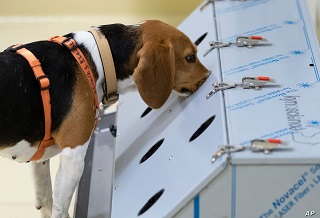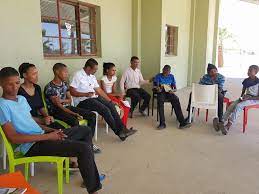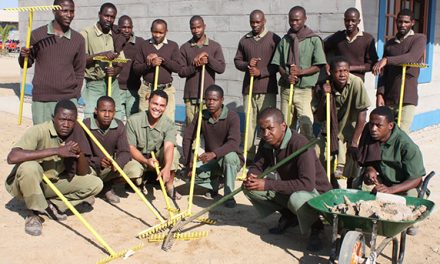
Capricorn Group commits funds to COVID-19 detection dogs pilot project

By Clifton Movirongo
The University of Namibia (UNAM) School of Veterinary Medicine (SoVM) recently received N$80,000 from the Capricorn Group to support their “unique” pilot project of training dogs to screen travellers and Namibians for COVID-19.
The group said the contribution to the project of the dogs will help in a unique way with the health, safety and recovery of the economy.
The announcement was made by Capricorn Group’s Executive Officer, Brand & Corporate Affairs, Marlize Horn, who added that the initiative is an important stride for the country and “if successful, can make a significant contribution in the country’s fight against the COVID-19 pandemic”.
‘‘Capricorn Group, as connectors of positive change, is excited to be part of such an exciting project in collaboration with public and private institutions. The pilot project is the first of its kind in Africa,” Horn said.
The SoVM is located in Windhoek close to the Hosea Kutako International Airport and the Ministry of Health is fully in support of the pilot project to train and deploy COVID-19 detection dogs.
According to Horn, the procedure consists of an underarm swap to gather moisture exuded through the pores of the skin. He added that the dogs sniff the samples, and up to now they have never had a false negative, with approximately 98% of the selected positive samples being COVID-19 positive.
As it stands, only four Beagles were successfully trained and have proven themselves capable of doing the job. Their names are Beauty, Bat, Amy and Adam.
“The dogs have learned to identify the molecular level of the samples, and that is fantastic. We are using Beagles as the preferred breed for now, because they come across as less intimidating to the public. In the future, we want to start training dogs from the SPCA. The radius for the smell of all dogs is approximately 1.5 metre. Therefore, all breeds should be able to do this,” revealed Dr Conrad Brain of UNAM SoVM.
Brain further explained that dogs’ noses are excellent since their scent detection is 100 or more times better than those of humans. “A well-trained dog can smell up to 30 to 40 different kinds of scents and be able to smell 17 people in less than 2 minutes which can contribute to overall cost-cutting for COVID testing since one dog and its handler equals four police officers, a doctor and more people needed test for the virus,” he said.
Lady Pohamba Private hospital is in amalgamation with the project as it aids with the evaluation of the samples. The contribution from the Capricorn Group will enable more dogs to be trained and ensure that the dogs are well taken care of with top of the range nutrition food as the project continues.











































